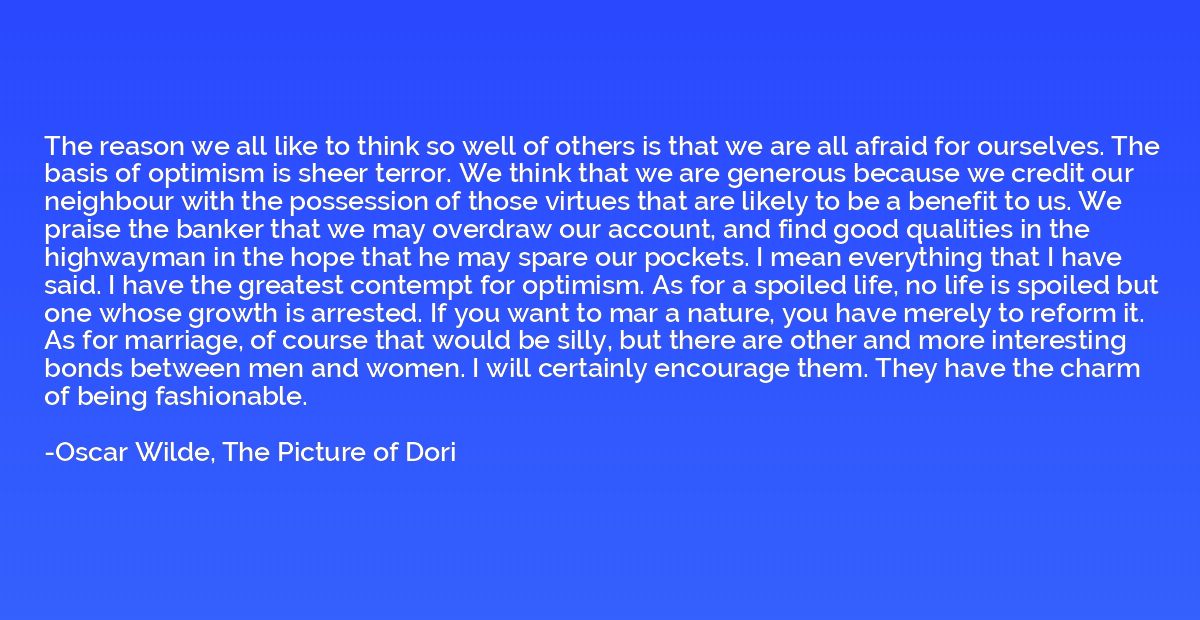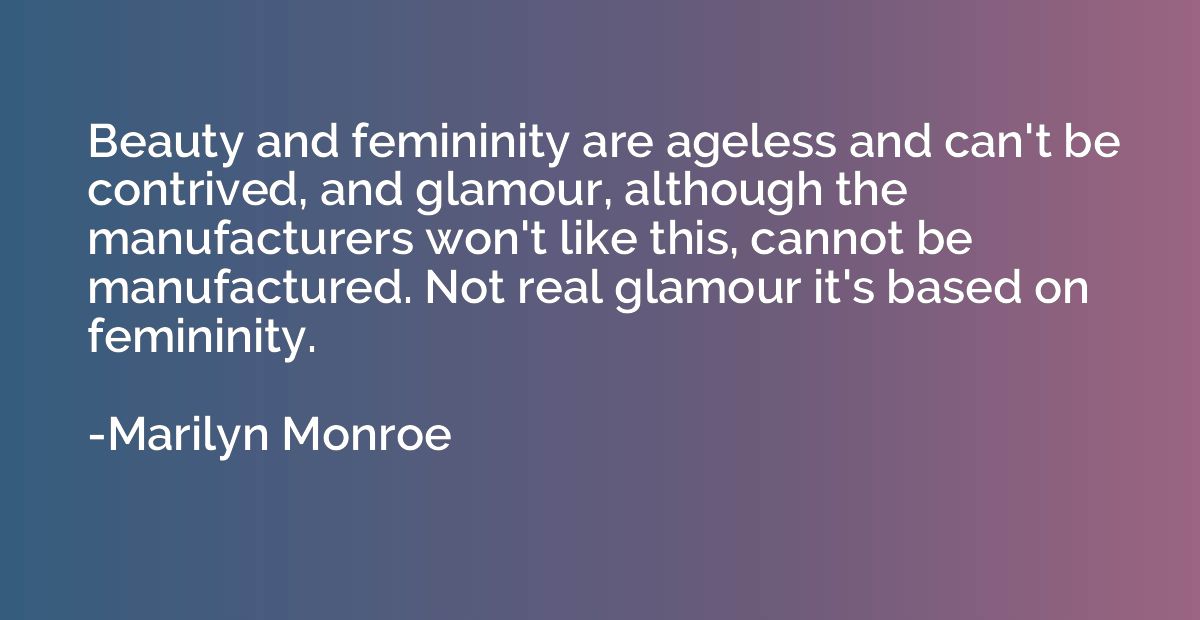Quote by Oscar Wilde, The Picture of Dori
The reason we all like to think so well of others is that we are all afraid for ourselves. The basis of optimism is sheer terror. We think that we are generous because we credit our neighbour with the possession of those virtues that are likely to be a benefit to us. We praise the banker that we may overdraw our account, and find good qualities in the highwayman in the hope that he may spare our pockets. I mean everything that I have said. I have the greatest contempt for optimism. As for a spoiled life, no life is spoiled but one whose growth is arrested. If you want to mar a nature, you have merely to reform it. As for marriage, of course that would be silly, but there are other and more interesting bonds between men and women. I will certainly encourage them. They have the charm of being fashionable.

Summary
This quote suggests that our tendency to view others in a positive light stems from our own fear and self-interest. It argues that optimism is driven by a deep-seated terror, leading us to attribute virtues to others that may benefit us. The quote also expresses contempt for optimism, claiming that a spoiled life is one that fails to grow. Furthermore, it questions the value of marriage but acknowledges the allure of other relationships between men and women, particularly due to their fashionable nature. Overall, this quote presents a cynical perspective on human behavior and relationships.














